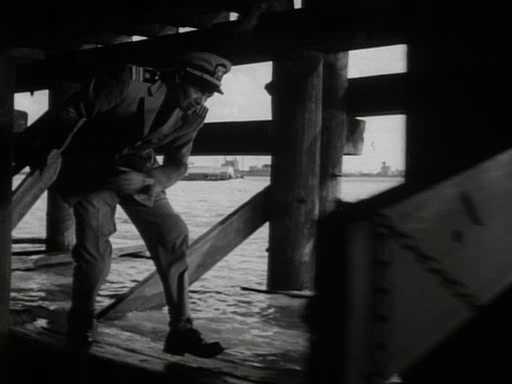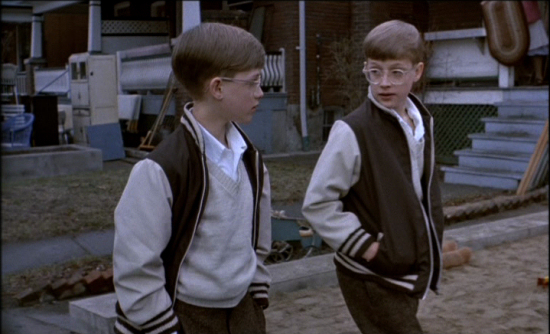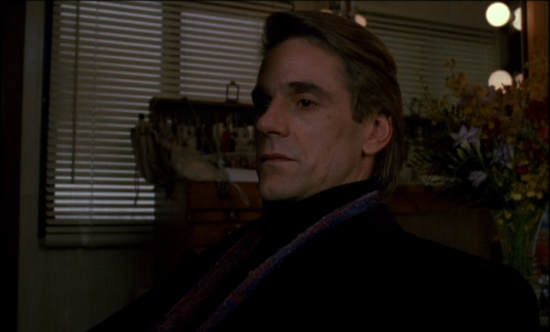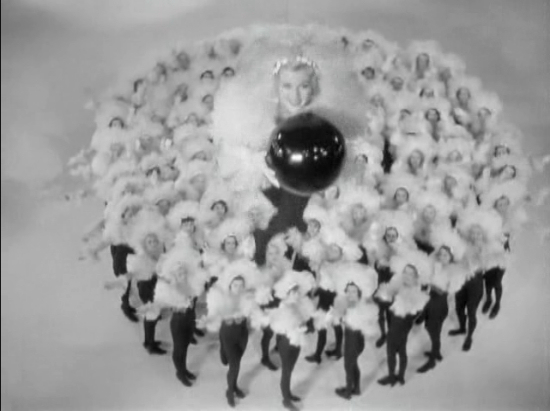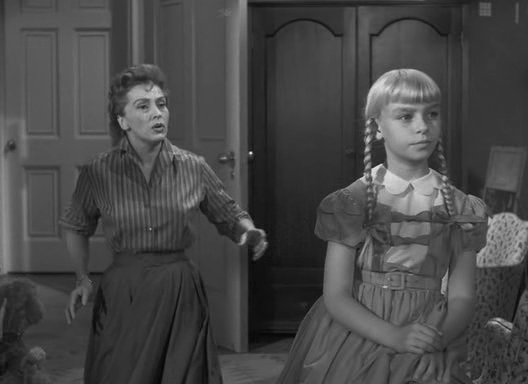
I've never liked kids, even when I was a kid. Kids are assholes. People often act surprised or shocked when a child does something particularly heartless or cruel, which always makes me wonder if these people have ever spent real time among children. There's a reason the same laws that govern adults don't govern children--kids don't have a real moral compass, the world revolves around them and they take behavioural cues from their parents. This seems like pretty basic stuff and yet somehow a lot of people tend to forget it, including a lot of fantasy authors who often write children as tender creatures with an innate sense of right and wrong. I would imagine some authors do this knowingly in order to provide an example for the children reading and help them on the path to maturity (The Chronicles of Narnia) or in order to write a child that's actually more representative of aspects of an adult psyche (Neon Genesis Evangelion). But there's evidence that some writers simply forget about the crucial differences between real and fantasy children, in which case you might end up with a movie like 1956's The Bad Seed. Based on a stage play (which was based on a book), the movie has few locations and feels stage-bound not just by the few sets but by the broad, loud performances of the cast who were drawn from the cast of the original play. Its ideas of child behaviour and psychology are naive and simplistic, yet it manages to be an entertainingly wicked film.
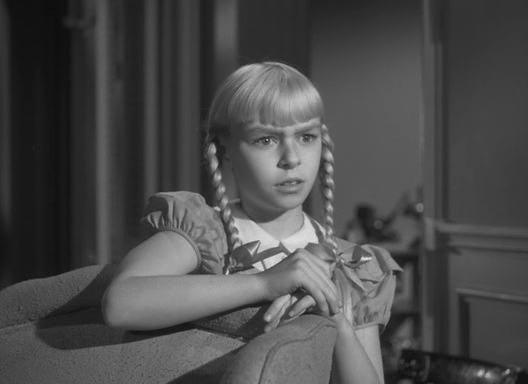
Patty McCormack plays the little sociopath Rhoda Penmark, a name that's a little on the nose as much of the plot concerns her burning up over a penmanship award she feels she ought to have won, so she murders the little boy who did win it. A normal child would probably eventually feel sorry for such thing and Rhoda doesn't exhibit any signs of remorse, though I think the other characters in the film jump the gun a bit in considering her an irredeemable monster.
When I was a kid, there was a boy and girl on my street--they were both around ten or eleven years of age. One day, the boy wanted to break up with the girl so she marched over to his house and uprooted a tree in his front yard.
I could tell you so many tales of kids being cruel. I imagine you could tell me some tales too. And it's not hard to imagine a kid, in a fit of selfish rage, really hurting another kid.

Putting the film into unintentional comedy territory is mainly the adult lead, Rhoda's mother Christine, who's in almost every scene of the movie. She's played by Nancy Kelly, an actress whose voice puts one in mind of Liza Minnelli and Nathan Lane, that standard Broadway affectation delivered always loud enough for the cheap seats and in this case contributes to the impression of Kelly's character as someone whose reactions are often much more dramatic than the situation calls for. She always either seems like she's reacting too big for the situation or too artificially for something truly bad that's happened.

The only really good performance in the movie is Henry Jones, the guy I remarked on as being particularly Innsmouthian when I saw him in Will Success Spoil Rock Hunter? a little while ago. Here he plays a groundskeeper for the wealthy Penmark family, apparently a cruel minded man who likes to tease Rhoda because she reminds him of himself--"You wanna know how I know how mean you are? 'Cause I'm mean. I'm smart and I'm mean. And you're smart and you're mean."

He's so wonderfully nasty.
It quickly put me in the mind of several Alfred Hitchcock movies--Suspicion, Shadow of a Doubt, Rope--all movies that featured at least one character who delights in talking about murder and methods of murder, perhaps avatars for Hitchcock's own sense of humour. That last movie, Rope, featured a professor with such a sense of humour who inadvertently, to his horror, influences an actual killing.
I remember first hearing about Rope from Caitlin, and she, on her journal a few weeks ago, commented that it was deeply sick for someone to think the movie We Need to Talk About Kevin was a comedy. She was reacting to saying he remembered someone, he didn't remember who, calling We Need to Talk About Kevin a dark comedy. Whether he was actually thinking of me and didn't mention my name because he knew it might get him instantly banned from Caitlin's journal or he was thinking of someone else, I don't know. But I did say I found We Need to Talk About Kevin to be essentially a comedy. It's certainly not news to me in any case that Caitlin thinks I'm sick.
Kevin, in We Need to Talk About Kevin, is more persuasively a sadistic sociopath than Rhoda to me. The comedy comes primarily from Tilda Swinton's badly written character--although Swinton is certainly a better actress than Nancy Kelly, her reactions as written to Kevin's behaviour were wrong in a similar way. Where Kelly's performance suggested narcissism to me, the writing of Swinton's character seemed indicative of a screenwriter with a perhaps unconscious martyr complex. This explains why, after living with Kevin for years, Swinton's character still reacts as though deeply wounded when he's rude to her, yet fails to take the appropriately extreme steps in response to his more extreme behaviour. Well, the movie's also funny for the persistent obliviousness of John C. Reilly's character. I did feel bad for the little girl who falls victim to Kevin, but that was like watching a kitten being drowned, a relatively cheap ploy for pathos.
It's interesting, then, that these two movies, separated by more than half a century, should tackle such similar subject matter and take such similar missteps.

The Bad Seed seems somewhat more confused, apparently arguing that Rhoda needs to die before showing at the very end Kelly, apparently out of character, giving the little girl a spanking.

I'm sure there were more than a few parents in 1956 who would have said this is exactly what Rhoda needed, though a spanking presented more sincerely in We Need to Talk About Kevin seems to have the opposite of the desired effect.
Twitter Sonnet #423
Decisive acid ventures too quickly.
Running ronin negate gasoline holds on fall.
Positive television shades strictly.
Some large still parrots look like a rock wall.
Orange cursors retreat to the teal tree line.
Eyes simmer on the mouldy frying pan.
Off white tile sweats a strawberry slime.
Yellow as a mustard bottle is man.
White cone fingers figure distant centaurs.
The premature hour hides the sharp book.
Cowboys replace the shoes lost on Star Tours.
Ice cream tales were Peter Falk's final hook.
A Playskool knife lodged in a Tonka heart.
It's Mattel love will tear Kenner apart.





